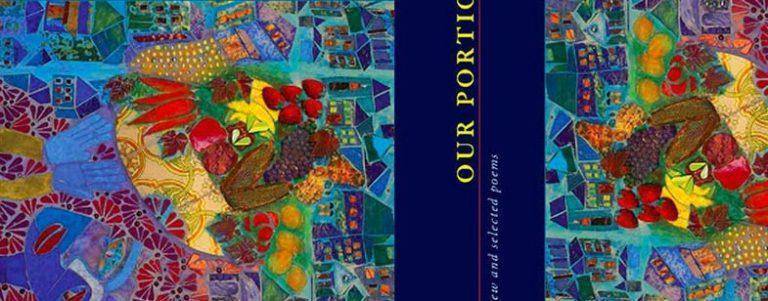Littsburgh is thrilled to be able to share with you three poems from Philip Terman‘s latest collection, Our Portion: New and Selected Poems (Autumn House Press).
“Using two decades’ worth of narrative verse that warmly coalesces around influential life moments, Terman [Barkeyville, Pa., resident and Clarion University professor] has found a sweet spot from which he rarely strays.” – Pittsburgh City Paper
Gardener, Whistling
Like synagogue singers whose psalms
are never wholly absent from their lips,
the gardener, softly, almost to herself, whistles
her way down the rows as she plants
the corn seeds, whistles watering the tomatoes,
lips puckered in the spontaneous melody
of the moment—whistles studying the poppies,
whistles examining the vines for grapes,
whistles testing the air for rain,
whistles hoeing until dusk turns
to dark, whistles the children to bed,
whistles her calloused feet in the bath,
whistles the robins and mourning doves
who weave her whistle into their song.
Abraham’s Breaking of the Idols
Abraham’s breaking of the idols is one of my earliest stories,
and I imagined not the act of destruction, but the way
he climbed up on the roof all by himself and looked up at the sky
and imagined how it was all one thing—the stars, his thoughts,
even the pieces of the stone sculptures he smashed, even
his anger at his father for sculpting them, the way I was angry
at my father for the way he’d sip his coffee and lean against
the sink before driving off to the work he hated so that I could
one day grow up and imagine Abraham inventing a religion
that included a father’s obligations for his son. Now
it’s the Sabbath, another result of that imagined imagining,
and my own child is sifting sand from sand on a summer morning
so indescribably beautiful you can’t help but grieve.
The shadowed wings of a turkey buzzard ascend the oaks and maples.
I heard that tale about Abraham in Sunday school.
I don’t remember the weather—spring or fall—only that
Abraham was just my age, and now my daughter’s,
hiding from his punishment, but, nevertheless, listening.
Some Days
Some days you have to turn off the news
and listen to the bird or truck
or the neighbor screaming out her life.
You have to close all the books and open
all the windows so that whatever swirls
inside can leave and whatever flutters
against the glass can enter. Some days
you have to unplug the phone and step
out to the porch and rock all afternoon
and allow the sun to tell you what to do.
The whole day has to lie ahead of you
like railroad tracks that drift off into gravel.
Some days you have to walk down the wooden
staircase through the evening fog to the river,
where the peach roses are closing,
sit on the grassy bank and wait for the two geese.
These poems published here courtesy of the author and Autumn House Press.
For more information, visit www.autumnhouse.org.

























